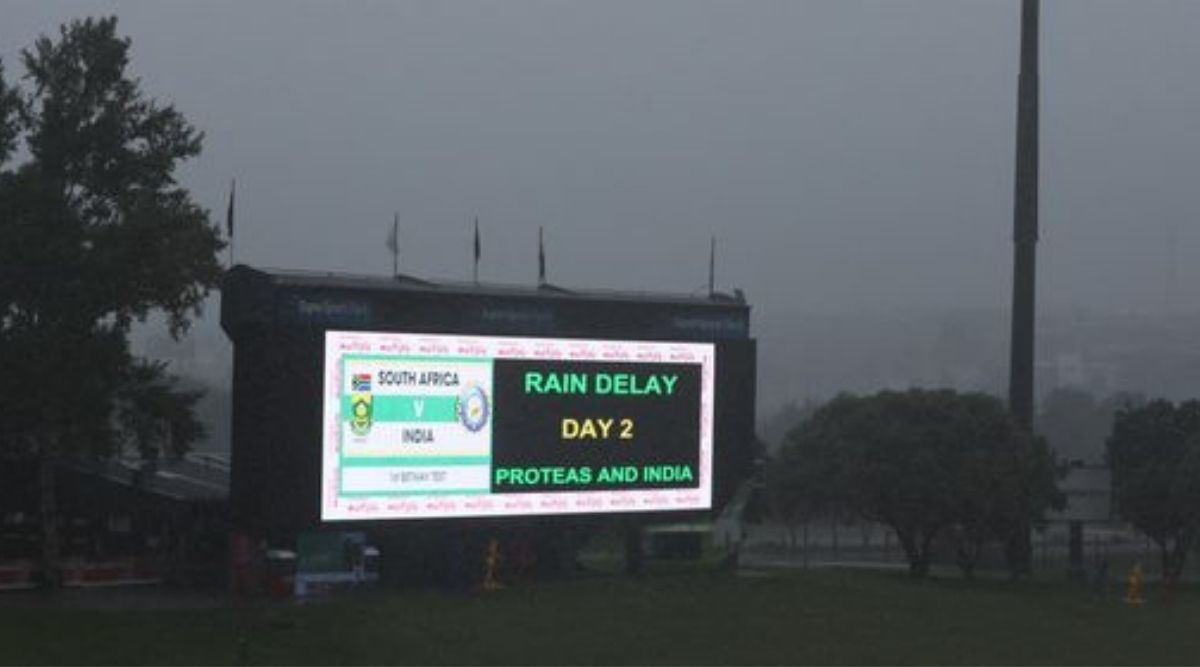 General view as the match is delayed due to rain. (Reuters)
General view as the match is delayed due to rain. (Reuters) The second day’s play in the opening Test between India and South Africa here on Monday had to be called off without a ball being bowled due to heavy and persistent rain since morning.
Unfortunately, due to the large volume of rain today at Centurion, play has been called off for the day. #SAvIND pic.twitter.com/NQ5Jbc8MlJ
— BCCI (@BCCI) December 27, 2021
What started as a drizzle this morning became a steady downpour in the afternoon.
Twice, the rain stopped and umpires decided on inspection but on both occasions just before they were to step out, heavens opened up once again.
At the end of the opening day’s play, India were strongly placed at 272 for three in 90 overs.
KL Rahul was going strong at 122 not out off 248 balls, during which he hit 17 boundaries and one six. Giving him company at the other end was Ajinkya Rahane, on 40 off 81 balls, with the help of eight hits to the fence.
Opener Mayank Agarwal made 60 off 123 deliveries before being dismissed by Lungi Ngidi.
Skipper Virat Kohli made 35 off 94 balls.
Ngidi (3/45) picked up all the three Indian wickets to fall on the first day of the match.
However, if India would have thought of batting for nearly two days, they would perhaps look for a solid first innings score of 400 to 450 and put the pressure right back on the Proteas, who only have three quality players — skipper Dean Elgar, senior keeper-batter Quinton de Kock and the seasoned Temba Bavuma in their ranks.
These three are the only ones with proven record to take the attack back to the opposition camp which boasts of a world class seam attack, comprising Jasprit Bumrah, Mohammed Shami and Mohammed Siraj.
However, to get 20 wickets, India would expect 270 overs of play in the next three days, The third and fourth day’s forecasts predict sunny weather with partly cloudy sky but on the final day, there is forecast of thundershowers.
- The Indian Express website has been rated GREEN for its credibility and trustworthiness by Newsguard, a global service that rates news sources for their journalistic standards.

